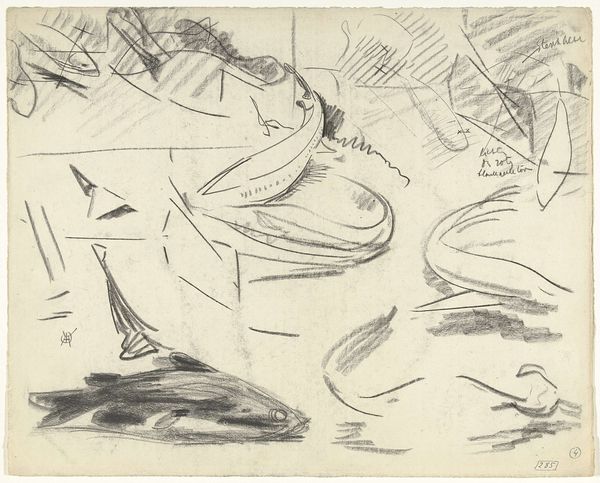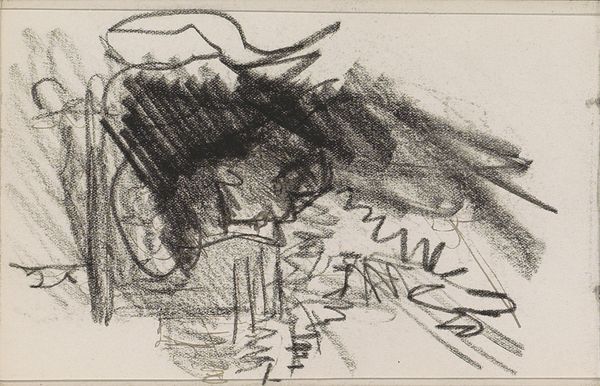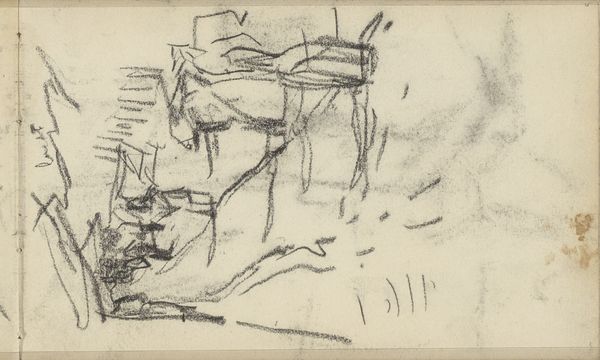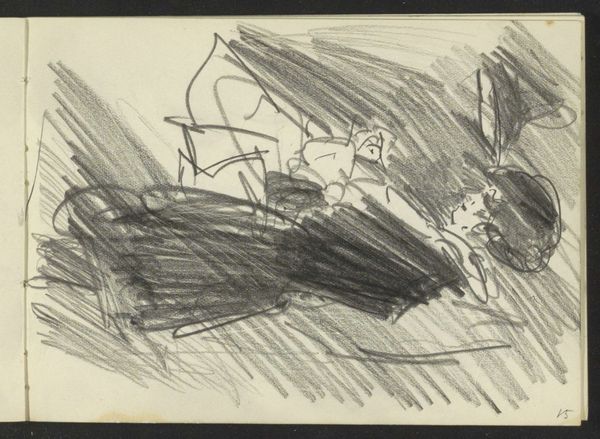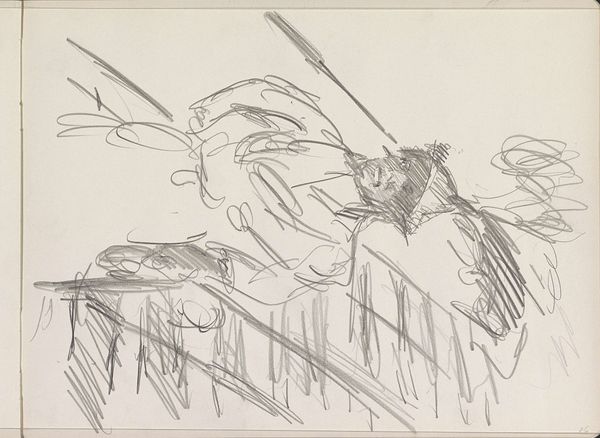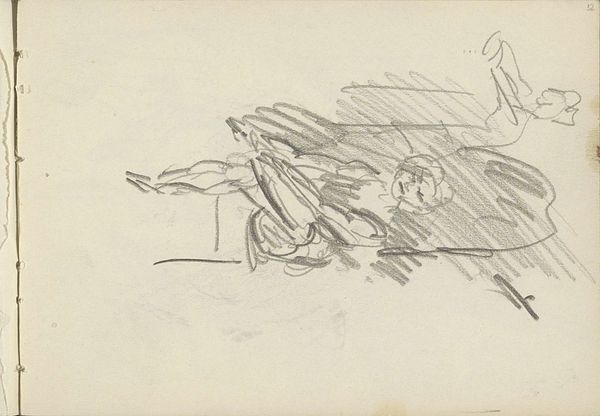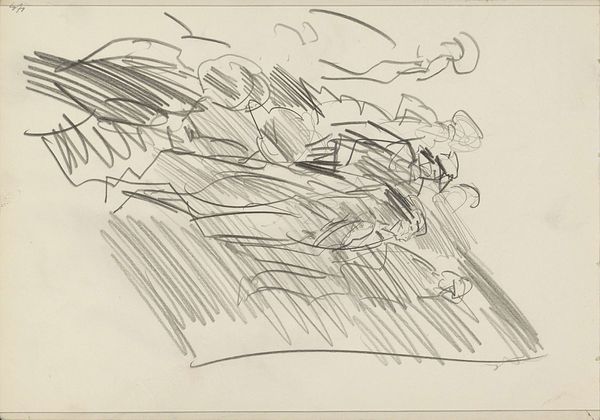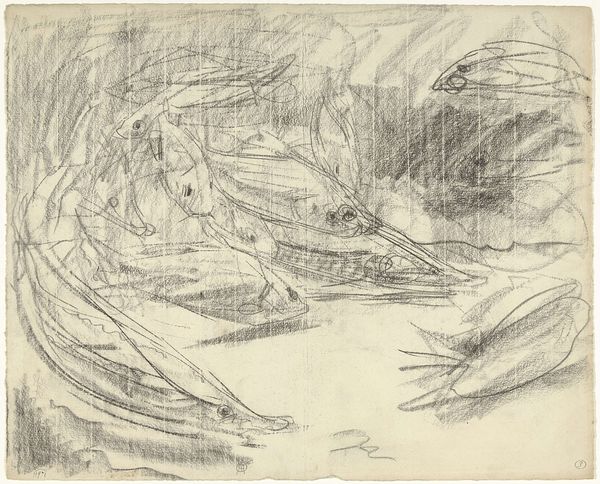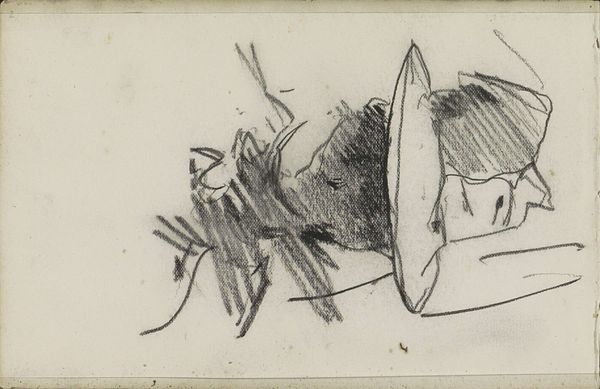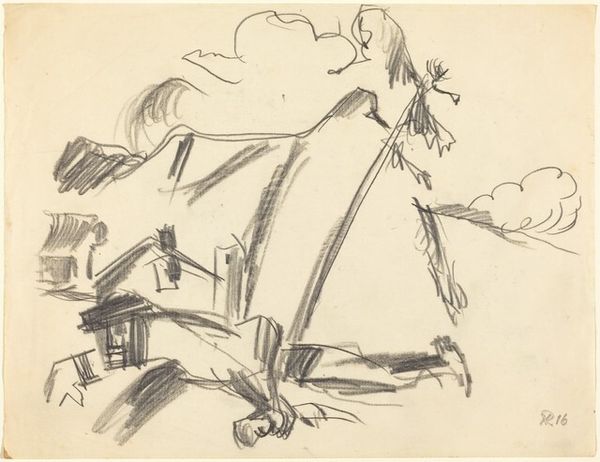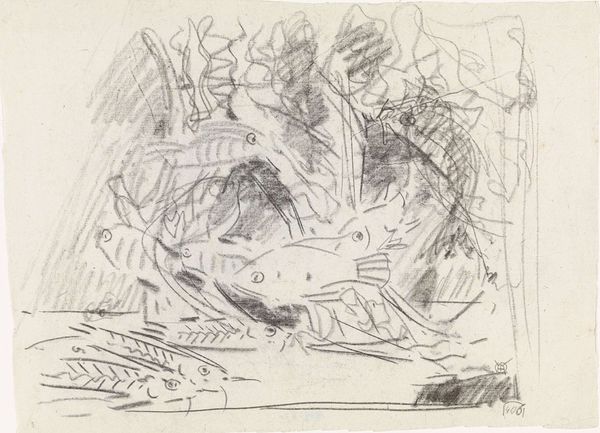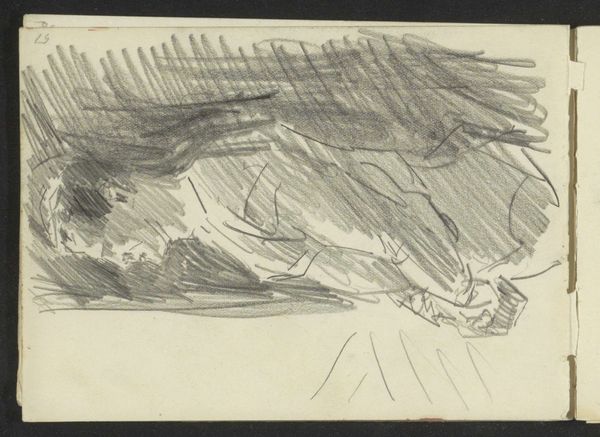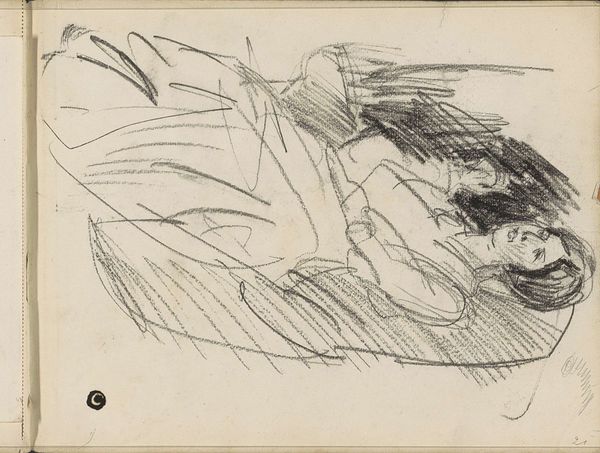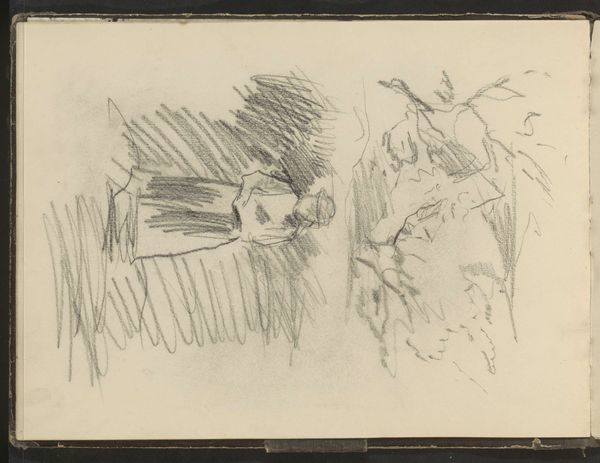
drawing, pencil
#
drawing
#
light pencil work
#
organic
#
quirky sketch
#
pen sketch
#
landscape
#
personal sketchbook
#
sketchwork
#
ink drawing experimentation
#
pen-ink sketch
#
pencil
#
line
#
sketchbook drawing
#
storyboard and sketchbook work
#
sketchbook art
#
realism
Dimensions: height 275 mm, width 325 mm
Copyright: Rijks Museum: Open Domain
Curator: Gerrit Willem Dijsselhof's "Vissen in een aquarium," created sometime between 1876 and 1924. It's currently held here at the Rijksmuseum. Editor: My initial reaction is the sheer energy captured here. The swirling lines and dense shading really give a sense of movement within a confined space. Curator: Indeed. Look at the interplay between the tightly packed, darker forms of the fish themselves, set against the suggestive, looser strokes that imply the water. It creates a dynamic tension, doesn't it? The use of line suggests implied forms, pushing and pulling space. Editor: And those materials—simple pencil on paper—are quite telling, pointing toward a sketch or study rather than a finished, monumental piece. This feels intimate, like we are witnessing the artist exploring the form and behavior of these creatures. Did he have ready access to an aquarium I wonder, or was it local stream life that informed this sketch? Curator: The drawing style feels almost impressionistic in its capture of fleeting movement. The artist is clearly more interested in evoking a sensation than creating a precise rendering. Editor: Exactly! And from a materialist perspective, consider the labor implied by the mark-making itself. It's a dense network of lines, built up through countless, individual strokes. This hints at both the artist's dedication and the perhaps tedious, repetitive nature of observing captive creatures. It does highlight labor involved in depicting life, whether wild or contained. Curator: But those repeated lines also construct volume and define forms. He really knew how to control line, pushing some elements into greater focus. I see not just representation, but design, construction and deconstruction as well. Editor: This controlled intensity does capture a glimpse into the social history, of people observing nature, making collections. Curator: This piece allows us to admire the craftsmanship and intent within the artistic exploration. Editor: I think looking closely reminds us of not only an appreciation of the artist's process but perhaps consider our impact, as we contain living creatures to observe and translate into sketches.
Comments
No comments
Be the first to comment and join the conversation on the ultimate creative platform.
